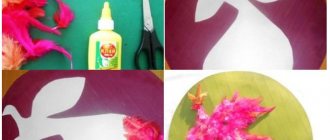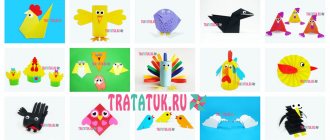Long-term work plan for valeological education (2nd junior group)
Work plan on valeology in the 2nd junior group for 2020-2021.
TOPIC: “FORMATION OF VALEOLOGICAL
Target:
organizing favorable conditions for the future formation of a healthy and physically strong personality, nurturing in children a creative attitude towards their health.
Main objectives:
1) Raising children's health needs.
2) Formation of a holistic understanding of a healthy lifestyle.
3) Creating the right ideas about a healthy lifestyle. 4) Teaching children to feel and experience a healthy lifestyle as an integral part of existence.
5) Using techniques for integrating different types of activities in the process of introducing children to a healthy lifestyle. Expected results
For children:
1) Developed healthy lifestyle skills.
2) Proper physical development of the child’s body, increasing its resistance to infections.
3) Improving somatic health indicators and physical fitness indicators.
4) The formation of a hygienic culture, the presence of a need for a healthy lifestyle and the possibilities of providing it. For parents:
1) Formed active parental position.
2) Increasing the competence of parents in matters of physical development and health.
3) Active participation of parents in the life of the preschool educational institution.
| SEPTEMBER | ||
| Subject | Contents and forms of work with children | Contents and forms of work with parents |
| child and health | 1. Game - activity “Help the Bunny preserve his health” Goal: To develop children’s initial life and health skills. Based on situational moments, learn to draw conclusions about life safety. Foster a sense of mutual assistance and a desire to help each other. 2. D/game “Who needs what?” Goal: to consolidate children’s knowledge of the items necessary for work as a doctor, cook, or salesperson. 3. S/role. games “Polyclinic”, “Hospital” Purpose: to expand children’s knowledge about the professional actions of medical workers, to cultivate respect for their work. Learn to unite in the game, distribute roles. 4. Reading: K. Chukovsky “Doctor Aibolit” | Questionnaire on the topic: “How to take care of health in your family.” Purpose: obtaining and analyzing information about parents’ attitudes towards issues of a healthy lifestyle for children. |
| OCTOBER | ||
| Healthy foods | 1. Conversation “What is useful and what is harmful.” Goal: To clarify children’s knowledge about healthy foods, to tell about the benefits of fruits and vegetables for human health. 2. Didactic games: “What’s on my plate”, “Cooking soup”. Goal: To consolidate the names of vegetables and fruits, the ability to recognize them by touch and by description, to exercise the ability to distinguish between vegetables and fruits. 3. S/role. game "Shop". Goal: To consolidate the names of vegetables and fruits, to cultivate a culture of behavior in public places. 4. Reading: Y. Tuvim “Vegetables”, G. Zaitsev "Bon appetit". | Folder - moving: "Health on a plate." |
| NOVEMBER | ||
| Personal hygiene | 1. Conversation “Cleanliness and Health.” Goal: To develop in children an understanding of the importance and necessity of hygiene procedures. 2. Didactic games: “Let’s make different dolls | |
| hairstyles”, “Let’s wash the doll”, “Hygiene rules”. Goal: to promote the development of the skill of using a handkerchief, to consolidate hair care skills, and knowledge of personal hygiene items. Promote the formation of habits of neatness. 3. Games and exercises in valeology “Me and my body.” (Game index.) 4.S/R. game "Barbershop". Goal: To consolidate knowledge about the profession of a hairdresser, to develop communication and behavior skills. 5. Reading: K. Chukovsky “Moidodyr”, A. Barto “The Grimy Girl”, Z. Alexandrova “Bathing”; nursery rhymes: “Grow your braid to your waist”, “Water, water” | ||
| DECEMBER | ||
| The human body | Conversation “My body”. Goal: To introduce children to the parts of the body and talk about the senses. 2. Didactic games “Repeat”, “Parcel from the monkey”, “How the toothy one got sick”. Goal: To exercise the ability to realize, remember and reproduce the movements shown, to develop visual-motor memory and attention. 3.Learning self-massage “Cockerel”. 4. Reading S. Prokofiev “Ruddy Cheeks”, N. Sakonskaya “Where is My Finger”. | Memos for parents: “Healthy lifestyle.” |
| JANUARY | ||
| Let's play sports there is | 1. Conversation “Health is good, thanks to exercise.” Goal: To promote the formation of the foundations of a healthy lifestyle, the need to engage in physical education and sports. 2. Didactic game “Name the sport.” Goal: To consolidate the name of some sports. 3. S/R game “Physical training in kindergarten”. Goal: To clarify knowledge about sports equipment. 4. Sports entertainment “We are not afraid of frost.” Goal: To form the habit of a healthy lifestyle, the need for physical activity. | Consultation for parents “Winter fun - let’s play” together with the children" |
| FEBRUARY | ||
| Magical dream | 1. Conversation “Why does a person need sleep?” Goal: To help children understand the importance of sleep at their age, to explain that during sleep the child’s body rests, grows, restores strength and improves mood. 2. Didactic games: “Who doesn’t sleep?”, “Where does the sun spend the night?” 3.S/R game “Moms put their children to bed.” Purpose: To provide an opportunity to show imagination on a given topic. 4.L. V. Beethoven “Moonlight Sonata No. 14”. (Collection of musical works). Goal: Positive attitude towards sleep”, 5. Reading “The Tale of the Stupid Mouse”. 6. Awakening gymnastics “Bear in a den”, "Fingers." (Card index) Self-massage of the face." (Card index) Goal: To help children relieve their sleepy state and awaken it in an interesting way. | Consultation for parents “Do you follow a daily routine?” |
| MARCH | ||
| Sun, air and water is our faithful Friends | 1. Conversation “The sun, air and water are our faithful friends.” Goal: To introduce children to hardening and its main types. 2. Didactic game “If you want to be healthy.” Goal: to develop in children the need to be healthy. Develop cultural and hygienic skills. Gymnastics of a game nature: -Balloons -The bunny loves to wash his face -Together with the sun! -Bare feet walk along the path. Goal: To develop in children basic knowledge about hardening methods, healthy lifestyle values, through the use of health-saving technologies. 4. Reading the work of V. Suslov “About Yura and physical education.” K. Chukovsky “Moidodyr”. Cartoon "Barboskins" series "Temper up." | Consultations on the topic: “Methods and principles of hardening” the child’s body.” |
| APRIL | ||
| Doctors are ours help ki | 1. Conversation “Doctors are our assistants.” Goal: Continue to instill in children an understanding of the value of health and the need to be healthy. 2.Excursion to the nurse's office. Goal: to expand children’s understanding of the work of a doctor and a nurse. 3. S/R games: “Pharmacy”, “Hospital”, “Tanya caught a cold”. | Consultation: “If a child is afraid of doctors.” Memos for parents: “Advice from Dr. Aibolit.” |
| Goal: To consolidate children’s knowledge about the profession of a doctor and pharmacist, to promote the formation of the foundations of a healthy lifestyle. 4. Entertainment “Don’t get sick” Target: Learn to take care of your own health. To consolidate knowledge about the importance of vitamins for human health. Introduce the following words into children's active vocabulary: vitamins, health. 5. Reading E. Shklovsky “How the bear was treated”, A. Barto “Tamara and I”. | ||
| MAY | ||
| Child on the city streets | 1. Conversation “All the guys need to know how to walk on the street” Goal: To introduce children to the basic rules of behavior on the street, traffic rules, and tell them about traffic lights. 2. Conversation “If you are lost on the street” Purpose: to introduce children to the basic rules of behavior in difficult situations, to tell them who they can turn to for help. 3. Didactic game “What does the traffic light say?” Goal: to consolidate children’s knowledge of the meaning of traffic lights. 4. Outdoor games “Colored cars”, “Sparrows and a car”. Entertainment "Dunno on the Street" Goal: to give children an idea of safe behavior in the yard. 5.S/roll. game "Bus" Goal: To train children in the skills of correct behavior in transport, to contribute to the formation of a culture of verbal communication. 6.Reading S. Mikhalkov “Uncle Styopa the Policeman”, V. Klimenko “Bunny Cyclist”. | Consultation: “Child on the city streets.” |



